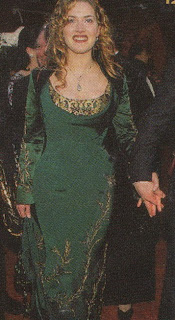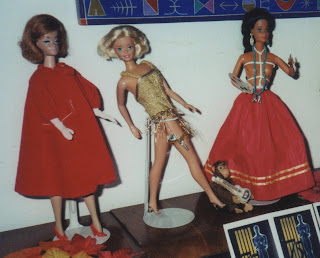
Heads up, kids! Here come two great movies you need to go see right away. As usual, some of the best films of the old year are just now trickling down onto local screens, and opening tomorrow are two of the best of 2010, either one (or both) of which I might have put on my personal Top Ten if only I'd seen them in time. Very different kinds of films, each deals with the passage of time with compassion and urgency.
How long is long enough to save the world? Even the miniscule portion of your immediate world where you might actually be able to make an impact? This is the dilemma faced by the hard-luck protagonist played with furious grace by the great Javier Bardem in Biutiful, a man clawing a living out of the urban underbelly of Barcelona who discovers he has only a short time left to straighten out his messy life for the sake of his beloved children. Brooding and heartfelt, it's a dark, yet tender vision of life on the fringe from the always provocative Alejandro González Iñárritu. (Read more.)

(High Hopes)
Here's the thing about Mike Leigh. From the very first of his films that I saw, the irrepressible High Hopes, in 1988, I knew that he and I were on the same wavelength. This most passionate bard of Britain's working class has always been a champion of the disenfranchised, with a dry, often scathing wit coupled with a huge heart for the human condition.
High Hopes is a blisteringly funny look at class warfare and family ties in Margaret Thatcher's England. At its heart is a scruffy young, leftist couple in the Kings Cross district of London; she's a nurturing earth-mother, he's a disappointed Marxist always railing scornfully (in unprintable but hilarious terms) about the evils of government by the corporate rich. Sadly, not much has changed in the world since then, except that the corporate stranglehold is even more severe and the plight of the lower classes even more desperate.

Leigh's absolutely wonderful new film, Another Year, could be about the same couple, 25 years later. Indeed, the same marvelous actress, Ruth Sheen, plays the wife in both films, and in both cases, she is the wry, good-humored, compassionate soul of the story. This time out, she's paired with the great Jim Broadbent; he's Tom, a geologist bursting with sly wit and bonhomie who does not suffer fools gladly, but most of the time just manages to keep a lid on his snarky opinions. Sheen plays his wife, Gerri, a caring mental health counselor at the local hospital. They live in a comfy brick flat north of London, but spend most of their free time at the neighborhood "allotment," an open plot of land where they tend their garden of vegetables and herbs. Their marriage has been long and happy, produced one droll and loving son (Oliver Maltman), and they still spend all their free time together, cooking, gardening, laughing, and hanging out.
Things have not worked out so well for their friends, most of them alone or unhappily wed, miserable in their jobs, dissatisfied with themselves, and no longer able to ignore the grim fact that life is passing them by. Time, not politics, is the enemy this time around, and the film takes place over the seasonal cycles of one year, from spring through winter, as time's wingéd chariot inevitably whooshes onward. (When Gerri comments on the book he's reading in bed, Tom dryly observes, "I never liked history in school, but the older I get, the more relevant it seems.")
But Tom and Gerri have faced life's challenges and made something of their lives together. The delicate tension wrought by Leigh in the film comes from the desperation with which their misfortunate friends are lured to the nurturing flame of their happiness and stability. Chief among these is Lesley Manville in a fearless and devastating performance as Mary, a lonely, long-divorced secretary at Gerri's hospital clinging to the memory of youth with her too-revealing clothes and too-brittle perkiness, who keeps pushing the boundaries, desperately trying to upgrade from work mate to surrogate family status. Peter Wight plays Tom's old school chum, also divorced, compulsively gorging himself on food, drink, and cigarettes to fill up the emptiness inside. (His neighborhood pubs are now "full of young people, talking about nothing!" he complains.) Tom's elderly old codger of a brother, Ronnie (David Bradley, best known as sinister Hogwarts groundskeeper Filch in the Harry Potter movies), is a new widower reduced to near catatonia, with an explosively angry son.

(David Bradley and Lesley Manville)
Leigh famously workshops his story ideas with his cast to arrive at a script, and there's not a false syllable in the entire movie. Every conversation, however fragmented, has the ache and vitality of real life, as well as every potent glance, and all the things that remain unspoken as these characters face up to life's disappointments. And the movie teems with sudden, breathtaking insights; when Mary talks to Ronnie about the music they loved as kids—The Beatles and Elvis—we realize this is what's become of the generation that was going to change the world back in 1968.
Working with his longtime cinematographer Dick Pope to replicate the changing seasons within a rigorous eight-week shooting schedule, Leigh also masters the look of the film as the year and his dramatic themes evolve. As vibrant as their kitchen is, with its warm, curry-colored walls and vivid tiles, the same interior looks washed out and cold in a later, winter scene when Tom and Gerri are not in it.
Despite the wistful melancholy of its theme, this is a delicious, savvy, and resonant film, peppered with irreverent wit and real feeling. Do not miss it.
(Trivia note: look out for Phil Davis—Sheen's co-star in High Hopes, pictured above—in a cameo in Another Year as a guest at a backyard BBQ.)























